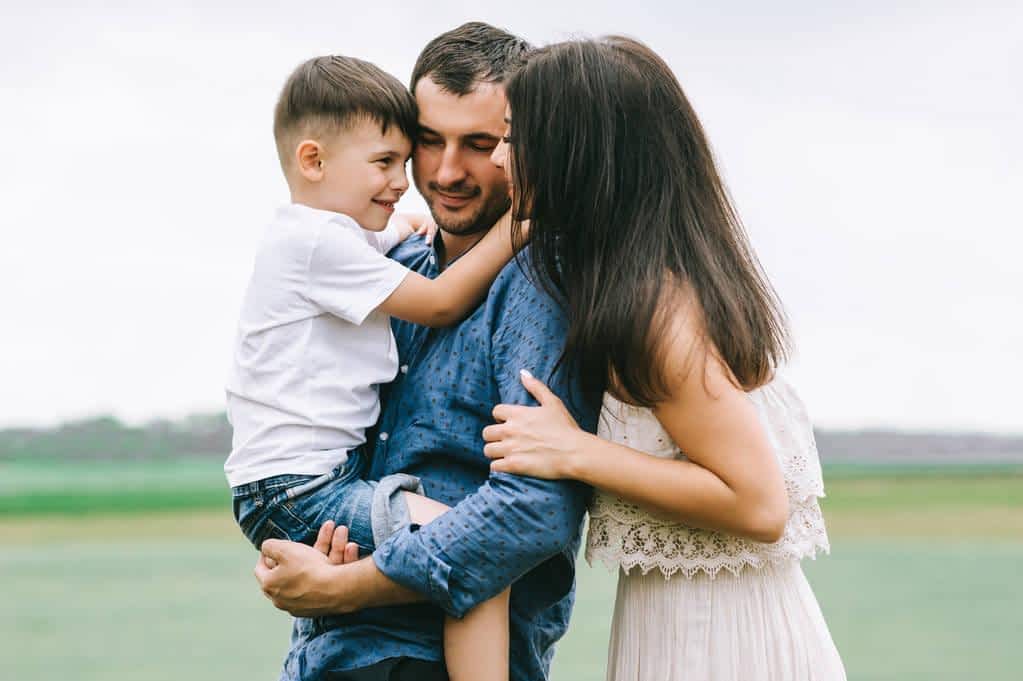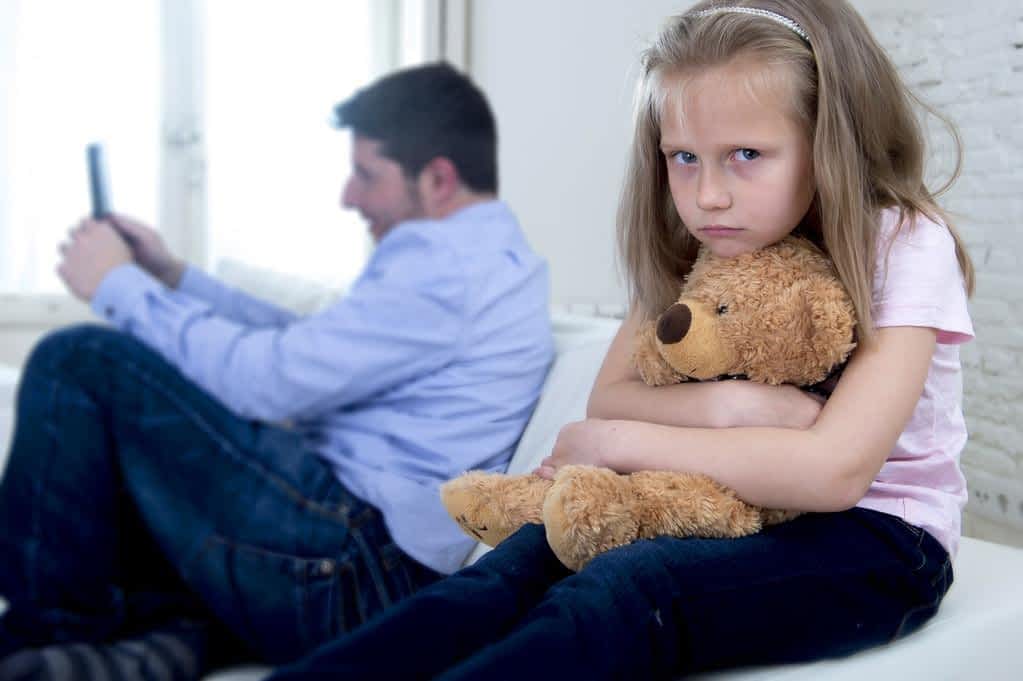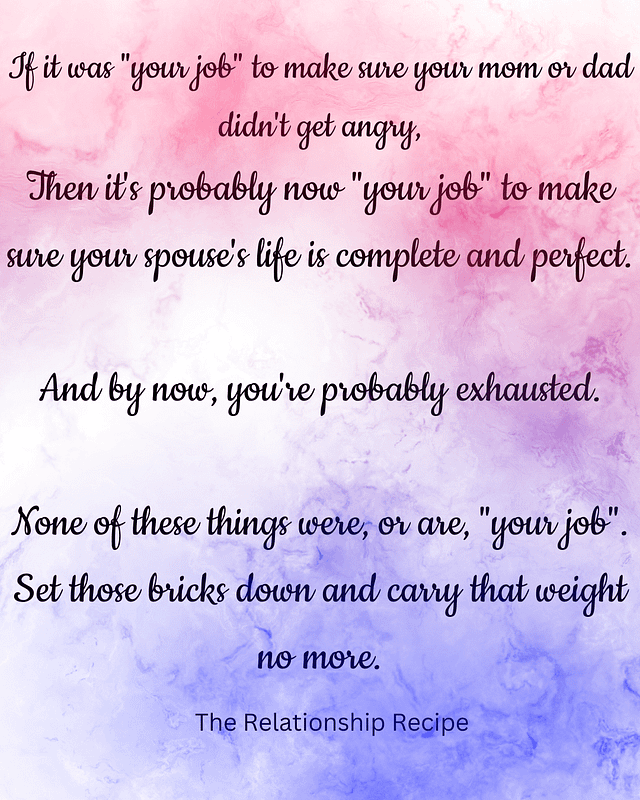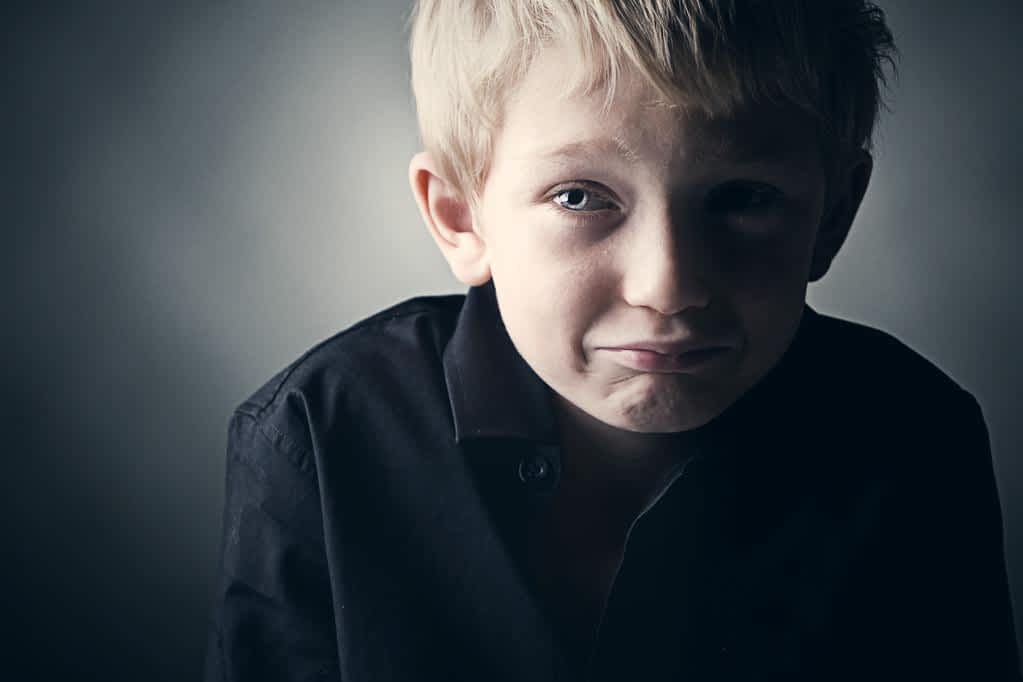14 Ways Childhood Emotional Neglect Leads to Toxic Relationships
Childhood emotional neglect leads to toxic relationships: no surprise there, right? The wild part is how sneaky it is. It’s not the kind of trauma that slaps you in the face; it’s the kind that sits quietly in the background, messing with your ability to form healthy relationships… and you don’t even know it’s happening.
A lot of us Gen-X kids were raised by tired, overworked parents who loved us but weren’t exactly tuned in emotionally. We got fed, housed, and maybe hugged once in a while, but deep talks about feelings didn’t always make the schedule. Emotional neglect in childhood and toxic relationships go hand-in-hand, and many of us are just now connecting the dots.
Emotional neglect creates unhealthy relationships – no doubt about it. If nobody taught you how to name your emotions, validate them, or even believe they mattered, how are you supposed to do that for someone else in a relationship?
Now we’re adults, stuck in toxic relationship patterns rooted in childhood neglect. We date people who ignore our needs, we stay in situations that drain us, and we call it “normal” because it’s all we know…. and just to keep the cycle going, there’s a whole new generation growing up with faces glued to screens, forming emotionally neglectful relationships with their parents through YouTube and iPads instead of eye contact.
Back in the day, parenting wasn’t exactly soft and cuddly. Gentle parenting wasn’t a thing like it is now. Our folks had Dr. Spock’s book, maybe, and a vague idea that spanking was kinda frowned upon. That was the emotional toolkit.
The link between childhood neglect and harmful relationship dynamics isn’t just real; it’s personal. And if any of this feels a little too familiar, don’t worry. You’re definitely not the only one connecting these dots.
Let’s dig into 14 real ways that childhood emotional neglect shows up in your adult love life, and more importantly, how to stop repeating the cycle.

I’ve learned that it’s really easy to have symptoms of CEN because many parents emotionally neglect their kids without even realizing it. (I think both of my parents also dealt with this from parents in their own childhoods as well.) I don’t think I was technically emotionally neglected, but looking back, I’d say I grew up with what I’d call a moderate dose of childhood emotional neglect.
For example, showing anger was off limits. If I showed it, I was told I “shouldn’t feel that way.” Which, obviously doesn’t make the feeling magically disappear – it just buries it under shame.
One memory still hits like a punch to the gut: I’d ask my dad a question, and he’d just ignore me. Not because he was mean, he just got lost in his own head, or maybe he was tired of my incessant questions. I remember crying bitterly to my mom about it and feeling unseen, unheard, and completely unimportant. That stuff leaves a mark on your sense of self.
Furthermore my dad was much harder on me than my brother who was 8 years younger. I don’t know why, but it likely had more to do with how he relates to females as opposed to males.
It’s kinda funny how things worked out: I turned out ok, but my brother was, and still is, a man-baby who acts like a rude, entitled brat. This had to be at least partly due to the favoritism my dad showed him when we were growing up.
Eventually, I stopped asking questions altogether. I learned to shrink myself to avoid being dismissed. And at the time, I figured it was just typical childhood insecurity. But deep down, I knew it was more than that. Because as I got older, I kept finding myself in emotionally neglectful relationships where my feelings were minimized, my needs were “too much,” and the emotional connection was always just out of reach.
That’s what childhood emotional neglect does. It sets you up for those toxic relationship patterns rooted in childhood neglect, where the pain feels familiar, even if it’s awful. There’s a real link between childhood neglect and harmful relationship dynamics, and if no one ever helped you name it, you probably just thought something was wrong with you.
But it’s not you. It’s the blueprint you were handed.
So let’s call it what it is and break it down. Here are 14 real ways that childhood emotional neglect leads to toxic relationships, and how to start recognizing (and rewriting) the script.

Both of my parents had somewhat traumatic childhoods, with alcohol abuse on both sides, mental illness, depression, and physical abuse woven through the tapestry of their upbringing. I certainly don’t blame them, and I wholeheartedly believe they did a good job raising me. They did the best they could with the tools they had.
🚀Understanding your parents’ backgrounds may help make sense of their behaviors, but it doesn’t diminish the impact on you today.
Although it usually takes a lot to get me there, I struggle with emotional regulation at times, which I admitted in a previous blog post. I also married an emotionally unavailable man, who had his own family issues in childhood as well. Let’s face it, most of us don’t come out of our childhood unscathed, even with near perfect parents.

💡Key Highlights
- How emotional neglect forms communication struggles in relationships
- The link between emotional neglect and difficulty expressing emotions
- Why emotional vocabulary is important for healthy relationship dynamics
- How emotional neglect contributes to misunderstandings and tension
- The impact of emotional neglect on navigating emotions in toxic relationships

14 Insights on How Childhood Emotional Neglect Leads to Toxic Relationships
🚩1. Normalizing Chaos
If you grew up with emotional neglect in childhood and toxic relationships feel a little too familiar, you’re not imagining it. Childhood emotional neglect leads to toxic relationships because it wires your brain to see emotional chaos as normal.
So when a partner is distant, hot and cold, or straight-up volatile, you might not flinch. You might even feel weirdly comfortable because toxic relationship patterns rooted in childhood neglect feel like “home.” Dysfunction doesn’t look like a red flag; it looks like your family’s dinner table.
This is exactly how emotional neglect creates unhealthy relationships in adulthood. You don’t know how to ask for emotional support because you never learned it was okay to need it in the first place. You downplay your feelings, tolerate poor behavior, and call it “love.”
There’s a very real link between childhood neglect and harmful relationship dynamics and the longer it goes unaddressed, the more likely you are to keep repeating the same painful patterns. The good news is once you see it, you can start to unlearn it.

🚩2. Feeling a Lack of Connection to Family
A lot of people who grew up with childhood emotional neglect feel strangely disconnected from their own families, like outsiders in their own story. That emptiness creates a deep craving for connection, and unfortunately, abusive partners know exactly how to exploit it.
They sense that longing, that ache for closeness, for belonging, and they use it like bait. Emotional neglect in childhood and toxic relationships are a match made in dysfunction because that need for emotional security makes you more vulnerable to manipulation.
When you’ve never had real emotional bonding at home, you’re more likely to cling to toxic dynamics in unhealthy relationships. Why? Because they mimic the chaos and emotional inconsistency you grew up with. It feels familiar, and familiarity feels safe, even when it’s destructive.
This is how the link between childhood neglect and harmful relationship dynamics keeps people trapped. Emotional neglect creates unhealthy relationships by training you to chase closeness, even when it hurts.

🚩3. Feeling Responsible for Others’ Emotions
This is a hallmark of how childhood emotional neglect leads to toxic relationships is the tendency to prioritize others’ feelings above your own.
Growing up in an emotionally neglectful home often teaches you to become the caretaker, making it easy for manipulative partners to guilt you into meeting their needs while ignoring your own. Women, especially, who grew up this way, may find themselves carrying all the emotional labor in thier relationships and marriages, while trying to function under the crushing exhaustion of being the “perfect wife.”

🚩4. Feeling a “Hunger” to Be Loved
Emotional neglect creates unhealthy relationships and leaves a mark, not just a bruise, on the heart, by making a gaping hole of emotional void. It creates a deep, aching hunger to be loved, not just liked or tolerated, but really seen.
Abusers can spot that kind of hunger from a mile away. They swoop in with fake intimacy and surface-level affection, making you feel special … finally. But it’s bait. Once you’re hooked, the real game begins: control, manipulation, emotional whiplash.
Because emotional neglect creates unhealthy relationships, you may convince yourself that crumbs of attention are better than nothing. You tell yourself it’s love. Or close enough. You tolerate mistreatment just to avoid the sting of being alone again.
This is exactly how toxic relationship patterns rooted in childhood neglect play out: you chase the love you never got, from people who never intended to give it.

🚩5. Mild to Severe Social Anxiety
Childhood emotional neglect in unhealthy relationships doesn’t just mess with your sense of self; it can wreck your ability to connect with others. Social anxiety becomes the unwanted side effect. Suddenly, simple interactions feel like uphill battles, and the idea of starting over can be absolutely terrifying.
That fear keeps you stuck. You might despise the person you’re with, fully aware the relationship is toxic, but leaving feels worse than staying. Not because it’s good, but because the unknown is paralyzing.
This is another way emotional neglect creates unhealthy relationships. It traps you in them by making the outside world feel scarier than the dysfunction you’re already living in. You’re not choosing love; you’re choosing familiarity over fear.

🚩6. Lack of Emotional Regulation
When you grow up without emotional guidance, you don’t magically learn how to handle feelings, you just learn how to stuff them down or let them explode. Managing emotions becomes a guessing game, and unfortunately, that becomes a huge issue in adult relationships.
Childhood emotional neglect in unhealthy relationships shows up as emotional outbursts, shutting down, or straight-up stonewalling – not because you’re dramatic, but because no one ever taught you how to regulate emotions in the first place.
These reactions escalate conflict and feed the toxic cycle of how emotional neglect creates unhealthy relationships and can weirdly feel “safe.” Dysfunction is familiar. And when chaos is your baseline, healthy communication can feel foreign or even threatening.

🚩7. Irresponsible Dating and Ignoring Red Flags
If you’ve experienced childhood emotional neglect, everyone you date might feel like “The One.” I had a friend like this. Her name was Betsy, and every new guy she dated was “marriage material” in her mind. I still roll my eyes a little when I hear that “The One” phrase.
I tried to support her through each relationship anyway, although I knew the eventual outcome. I haven’t heard from her in years, and I often wonder where she is and if she ever found that “One”. I hope she did.
🚩You may ignore glaring red flags of the link between childhood neglect and harmful relationship dynamics in a rush to fill the emotional void. Toxic relationships thrive on this impulsivity, like a magnet to steel, and abusers know they can quickly latch onto your eagerness to connect.

🚩8. Wanting to Be Saved or Rescued
Childhood emotional neglect creates unhealthy relationships into adulthood because it often plants a quiet, desperate desire to be saved. When you grow up without emotional support, even the bare minimum from someone, especially someone who seems nurturing or attentive, can feel like a lifeline.
I remember this in myself. As a kid, I’d latch onto any adult, male or female, who gave me attention. Teachers, neighbors, friends’ parents. It didn’t matter. If they noticed me or spoke kindly to me, I felt this weird sense of attachment. I knew it was a little odd, even then. But I couldn’t stop it. It felt like I was finally getting something I thought I didn’t get at home, and I clung to it like it might disappear.
That kind of emotional wiring sets the stage for toxic patterns later. Abusers spot that need instantly. They offer superficial care or affection, just enough to feel life-changing to someone who’s been starved for it. And that’s how the trap is set, not with overt control at first, but with just enough warmth to hook you.
One thing to keep in mind, this dynamic makes it easy to confuse controlling behavior with love and care.
Remember, control is at the root of every toxic, abusive relationship.

🚩9. Feeling “Weirded Out” by Affection Between Others
Ever see a mom hugging her kid and feel… weird about it? Like it’s overly affectionate or too much? That discomfort might not be about them – it might be about you. If you grew up with emotional neglect in unhealthy relationships, real affection can feel foreign. Unnatural. Even creepy. And yet, it’s exactly what every kid should have had.
Abusers love to twist this. They pick up on that emotional gap and exploit it. They’ll convince you that kind of closeness is unrealistic, or that you’re just not the “emotional type.” Maybe they’ll even say you’re cold, distant, or broken… that this is just who you are. But that’s not truth. That’s manipulation built on top of old wounds.
When I had my own kids, I basically went full-on over correction mode, and I have no regrets. I probably gave each of them 50 kisses and hugs a day. Minimum. Tons of holding, cuddling, snuggling, especially during those baby and toddler years when attachment really forms. Now they’re older, but I still get a daily hug as they head out to work.
I’ll take it.
I may not have gotten that level of connection growing up, but I’m damn proud I knew to give it to them. My heart was so filled with love for them that is came naturally.
That’s what healing can look like: not perfection, but doing it differently when you get the chance.

🚩10. Having a Good Emotional Vocabulary is Difficult
Childhood emotional neglect creates unhealthy relationships because it often starts with something so basic, yet so overlooked: a missing emotional vocabulary. If you didn’t grow up learning how to name or talk about your feelings, how are you supposed to express them now?
You might feel angry but say you’re “fine.” You might feel overwhelmed and have no idea how to explain why. And when you do try? It comes out messy, or not at all.
That’s how childhood emotional neglect lead to toxic relationships by quietly setting the stage for conflict. When you can’t communicate what’s going on inside, misunderstandings pile up.
The people around you get frustrated. You feel unseen and unheard (again). And suddenly, the tension becomes the norm because it’s easier to shut down than try to untangle what you never learned to say.
This is exactly how emotional neglect creates unhealthy relationships later on in adulthood – not with obvious drama at first, but through confusion, silence, and emotional disconnection that festers over time.

🚩11. Being Emotionally Mature is Challenging
Toxic relationships rooted in childhood neglect can make emotional maturity feel like a foreign language. If you grew up without support or guidance around feelings, chances are you either overshare in a way that feels harsh or under-communicate to avoid rocking the boat.
This kind of emotional confusion stems from what you didn’t get as a kid; not just hugs and “I love yous,” but conversations that helped you understand and name what you were feeling. Without that, it’s easy to fall into extremes: being too blunt and pushing people away, or hiding your true emotions out of fear or habit.
Emotional neglect in childhood and toxic relationships often go hand-in-hand, because without emotional skills, it’s hard to set boundaries or express needs clearly. That makes it easier for unhealthy patterns to take hold, and harder to break them.
When your emotional foundation is shaky, you react instead of respond, struggle to explain what’s going on inside, and end up feeling disconnected in the relationships that matter most.

🚩12. Distrusting True Kindness
When kindness wasn’t a consistent part of your childhood, it feels suspect – like the person being nice to you must have some ulterior motive. This distrust makes you question genuine gestures, leaving you vulnerable to abusers who manipulate through love-bombing or “on again, off again” affection that gets you addicted to the cycle of highs and lows.
I can’t say this enough, but recognizing the patterns of how childhood emotional neglect creates unhealthy relationships is important to breaking free from this toxic cycle. Some people really are kind to everyone and expect nothing in return.
Learn to identify the difference between kindness and “being nice.”
They are different with in the way that anyone can be nice, but not everyone has the ability to express true kindness. The kind that comes from the heart.

🚩13. Connecting Through Actions, Not Emotions
Growing up without enough emotional interaction often teaches you to connect through actions like doing favors, helping out, etc instead of sharing how you really feel. That leaves you open to partners who take your efforts for granted but never return the emotional support you deserve.
Childhood emotional neglect creates unhealthy relationships by convincing you that love has to be earned through what you do, not how you feel. In abusive dynamics, this belief traps you in a loop of giving and giving, but rarely receiving the care you actually need.

🚩14. No Room for Your Feelings
If you grew up feeling like there was no room for your emotions, that pattern follows you into adulthood. You might find yourself stuck in relationships where your feelings get minimized or ignored. Emotional neglect in childhood and toxic relationships create a cycle where your needs are constantly dismissed.
That’s exactly what I live with. I can’t express anger or frustration without getting my head snapped off. Meanwhile, he can rage whenever he wants with no consequences. Negative emotions from anyone else? Big mistake.
Growing up, I wasn’t allowed to show anger either. Feeling stifled and dismissed back then taught me to hold it all in, but now, if I’m dismissed, I react. I’m working on this because I used to see losing control as a weakness or character flaw. I’m not a “ragey” person by nature, but I get why being dismissed triggers me so deeply.
Breaking free means reclaiming your right to feel and express your emotions, even if you grew up in emotionally neglectful relationships that taught you otherwise.

How to Break Free from Toxic Relationship Patterns Rooted in Childhood Neglect
Understanding the link between emotional neglect in childhood and toxic relationships later is the first step toward healing.
✨Here are actionable strategies:
- Get Therapy: A therapist can help you unpack childhood wounds and develop healthier relationship patterns.
- Learn Emotional Regulation: Practice mindfulness and journaling to understand and manage your emotions.
- Set Boundaries: Recognize your worth and establish limits in relationships.
- Educate Yourself: Read books and articles about childhood emotional neglect and abusive relationships to deepen your understanding.
- Build a Support Network: Surround yourself with friends and family who validate your feelings.
Toxic relationship patterns rooted in childhood neglect don’t define you. By seeing these patterns and taking steps to heal, you can break free and build healthier, more fulfilling relationships.

FAQ: How Childhood Emotional Neglect Leads to Toxic Relationships
1. What is emotional neglect’s part in toxic relationships?
Emotional neglect’s part in toxic relationships often starts in childhood and carries into adulthood. It can cause emotional disconnection, difficulty in communication, and a lack of intimacy in relationships.
2. How does childhood emotional neglect impact adult relationships?
Childhood emotional neglect’s part in toxic relationships can leave lasting scars, making it difficult for individuals to express their feelings or trust others. This can lead to emotionally neglectful relationships later in life.
3. Can emotional neglect in unhealthy relationships be healed?
Yes, healing from emotional neglect in unhealthy relationships is possible through therapy, self-awareness, and learning healthy communication skills. It takes time but is essential for emotional growth.
4. What are the signs of emotionally neglectful relationships?
Signs include a lack of emotional support, one-sided communication, and feeling ignored or unimportant. Partners may avoid addressing emotional needs, leading to feelings of loneliness and frustration.
5. Why is emotional neglect harmful in relationships?
Emotional neglect erodes trust and intimacy, leaving both partners feeling disconnected. Over time, it can lead to resentment, emotional burnout, and the breakdown of the relationship.
6. How can I recognize emotional neglect in my relationship?
If you feel emotionally unsupported or your partner consistently dismisses your feelings, it may indicate emotional neglect. Lack of validation, empathy, and communication are common signs.
7. How can childhood emotional neglect affect my ability to trust others?
If emotional needs were neglected as a child, you may struggle to trust others as an adult. This can create barriers to intimacy and make it difficult to form deep, healthy connections.
8. What can I do if I’m in an emotionally neglectful relationship?
Start by having open conversations with your partner about your emotional needs. Therapy can also help both individuals understand their past trauma and improve the emotional dynamic in the relationship.
9. Can emotional neglect cause long-term effects on mental health?
Yes, emotional neglect can lead to long-term mental health issues such as anxiety, depression, and difficulty with self-worth. These effects may continue if the cycle of neglect isn’t broken.
10. How does emotional neglect contribute to unhealthy relationship patterns?
Emotional neglect often leads to patterns of withdrawal, avoidance, and miscommunication. These behaviors become ingrained over time, making it difficult to break the cycle without intervention.
Thank you for reading this post, don't forget to subscribe!







